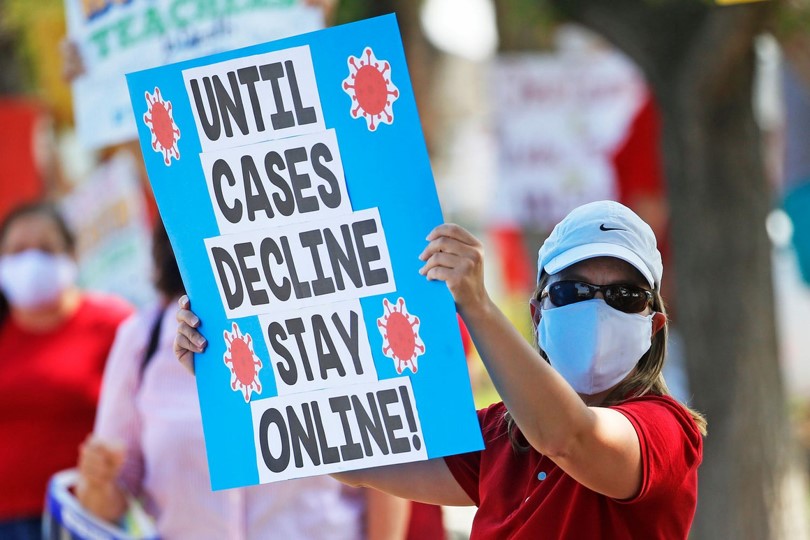The narrative around education funding in Arizona has been dominated by the K-12 establishment, teachers’ unions, and their cheerleaders in the mainstream media. For years they have told the public, despite billions in new education funding pouring in the past several years, that schools remain woefully underfunded. Sadly, this has resulted in a bidding war with the K-12 lobby on how much more to spend, regardless of educational results or accountability.
That prevailing narrative has now hit a brick wall. The Arizona education lobby and their out-of-state special interest friends cashed in all their chips for Proposition 208 – the largest tax increase in Arizona history. They were able to convince a bare majority of voters to pass it. And now they have a real problem.
Proponents promised that Prop 208 would restore our state to “pre-recession” funding levels, the watermark they use to define the ever-nebulous “fully funded” concept. The architects of Prop 208 claimed that its passage would pump a $1Billion into the K-12 system. Based upon what they promised Arizona voters, our schools are now fully funded.
Despite opponents of the measure sounding the alarm on the devastating effects Prop 208 would have on our economy, advocates assured voters it did not impact small businesses and would not drive high-income earners and job creators out of the state.
But that is exactly what it is doing. Inevitably, Proposition 208 will not generate the revenues they promised voters, leaving proponents in an awkward position. They asked voters to pass this to “fully fund” education, knowing full well it would not generate the revenues they “projected” and they would be back asking for more money. Some people call that a bait and switch.
This crisis in credibility is sure to be at odds with lawmakers this legislative session when the education community predictably demands more money, being unsatisfied with gobbling up 52 percent of the entirety of the state’s budget. However, they have a second glaring problem divorced from the soon to be public revelation that they lied throughout the entirety of the Prop 208 campaign.
There is an exodus of students from the district schools and no one knows if these students are ever returning. Since the pandemic, public schools have seen a 5 percent decline, while enrollment in Empowerment Scholarship Accounts, which allows parents to use their tax dollars to homeschool or choose an alternative learning solution for their children, has exploded.
Understandably, the school districts have always enjoyed natural sympathies from parents who support their children’s schools and teachers. But that implicit trust has been cracking under COVID as teachers’ unions threatened to strike if schools reopened in the Fall, school boards vacillated between distance and in-person learning, and schools opened daycares but not classrooms. Parents were left with no other alternative but to seek out better options for their kids.
Since funding levels are tied to student enrollment, the education lobby will have to explain why they should receive more money when fewer families are choosing their product, especially when they have already secured their big bucket of money from Prop 208.
The passage of Prop 208 and the fracturing of the trust between the public schools and families have changed the framework of the debate around education in our state. For the 2021 legislative session, that means the conversation will not center around how many unaccountable dollars can be poured into the K-12 system. Rather – it is likely the session will be dominated by two prevailing policies – backpack funding and expanding school choice. And this is very good news for the kids of Arizona and for taxpayers.


Recent Comments